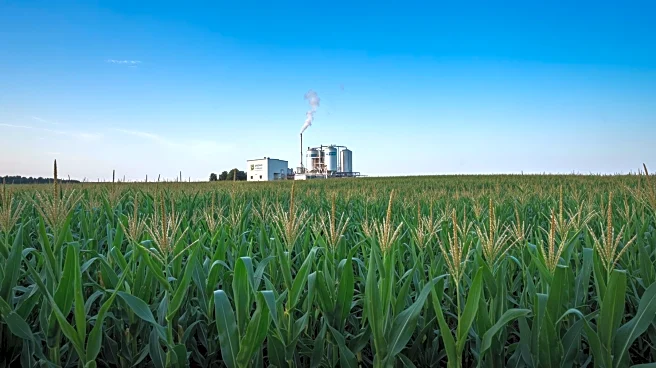What's Happening?
India's increased ethanol production is affecting its agricultural practices, particularly the cultivation of oilseeds. The government has been using more corn and rice to produce ethanol, leading to a surplus of distillers dried grains with solubles (DDGS), a byproduct that is flooding the animal feed market. This surplus is reducing demand for meal, lowering oilseed prices, and prompting farmers to switch from growing soybeans and groundnuts to corn and rice. This shift is undermining India's efforts to reduce its reliance on edible oil imports, as the area planted with oilseeds has decreased by 4% while maize cultivation has increased by 10.5%.
Why It's Important?
The shift in agricultural practices due to ethanol production has significant implications for India's economy and food security. India is the world's largest importer of edible oils, spending over $17 billion on imports last year. The reduction in oilseed cultivation could increase this dependency, affecting global edible oil prices. Additionally, the surplus of DDGS is complicating India's efforts to export meal, as countries are opting to buy from other sources like the U.S. This situation highlights the challenges India faces in balancing its energy needs with agricultural sustainability and economic self-reliance.
What's Next?
India's government may need to address the impact of DDGS on oilseed production to achieve its goal of increasing domestic edible oil production. This could involve providing incentives for oilseed farmers or adjusting ethanol production policies. The ongoing shift in agricultural practices may also prompt further changes in trade policies and international agreements to manage the increased import needs and stabilize domestic markets.
Beyond the Headlines
The situation raises ethical and environmental questions about the prioritization of energy production over food security. The reliance on corn and rice for ethanol production could lead to long-term shifts in agricultural practices, affecting biodiversity and soil health. Additionally, the increased import of edible oils may have geopolitical implications, as India becomes more dependent on foreign suppliers.









